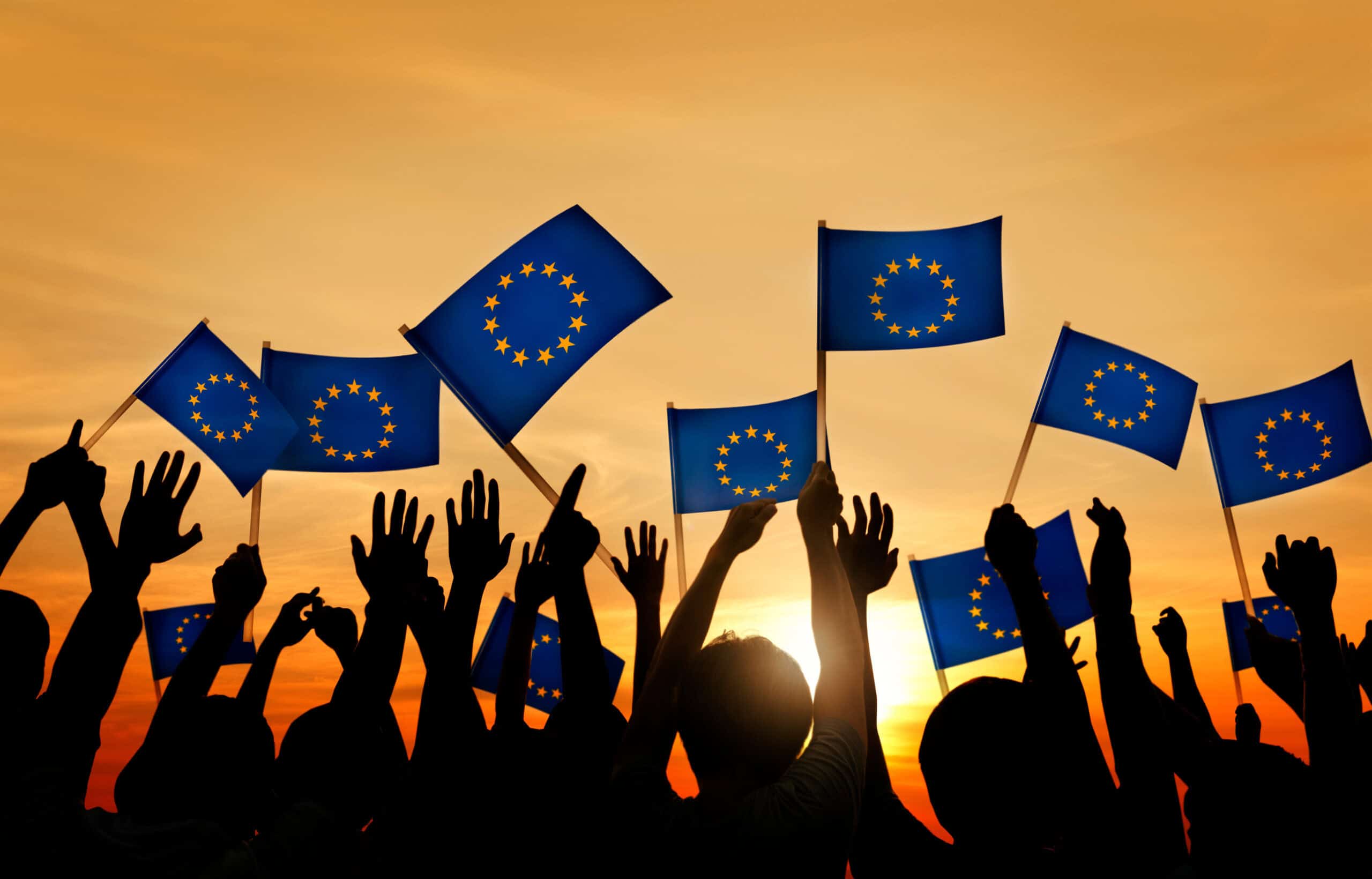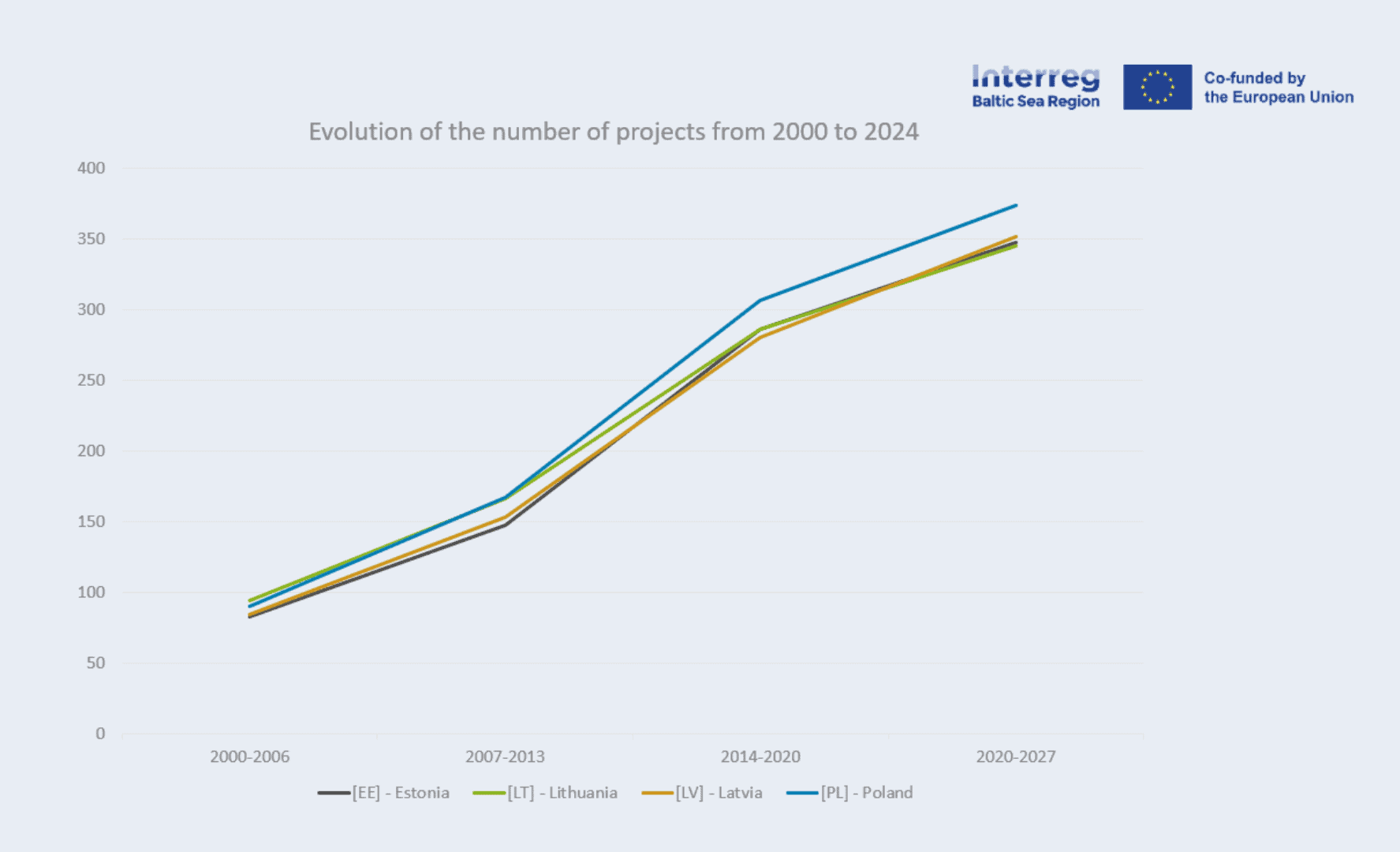
2 May 2024
Celebrating the long-standing cooperation with Estonia, Latvia, Lithuania and Poland
Written by Anna Zaccaro & Susie hacquin
Since 1998, the countries of the Baltic Sea Region have cooperated in transnational Interreg projects for a better future. In the beginning, it was a cooperation between the EU members Denmark, Germany, Finland and Sweden and the non-EU member Norway. However, the EU extended over the years and four countries around the Baltic Sea joined in 2004: Estonia, Latvia, Lithuania and Poland. Let’s jump back in time and learn about the journey of Estonia, Latvia, Lithuania and Poland with Interreg Baltic Sea Region.
Teresa Marcinow, Interreg Baltic Sea Region Monitoring Committee member, POLAND
Welcome to the European Union
The fifth EU enlargement aimed to unify Europe for peace and prosperity. Initiating in 1997, the Luxembourg European Council jumpstarted the enlargement process, allowing each applicant, including Estonia, Latvia, Lithuania, and Poland, to progress at its pace. Financial instruments like Phare, Ispa, and Sapard supported candidate countries in adopting EU rules and strengthening their institutions and economies by facilitating development in agriculture, infrastructure, research, culture, and education.
Greater together
Margarita Golovko, Interreg Baltic Sea Region Monitoring Committee member, ESTONIA

Ilga Gruseva , Interreg Baltic Sea Region Monitoring Committee member, LATVIA
The Future Ahead
Now let’s focus on the future! In the current Interreg Baltic Sea Region Programme 2021-2027, we already have 58 projects running in Estonia, 68 in Latvia, 54 in Lithuania, and 63 in Poland with great ideas about how to make the Baltic Sea region a greener area to live in. Estonian partners take a prominent role in projects addressing innovative and climate-neutral societies. In the BaMuR project, Estonia leads efforts to equip cultural institutions with tools to maintain their societal role during crises, while in eRural Resilience, partners strive to support rural SMEs in enhancing digital literacy for e-marketing bio products. Latvian partners take a central role in projects focused on climate-neutral societies. Latvia leads the GlassCircle project, aiming at reducing environmental impacts by repurposing glass fiber waste, and Circular Spaces, which facilitates collaboration among maker spaces to promote eco-design and material reuse for sustainable product development.
Deimante Jakunaite, Interreg Baltic Sea Region Monitoring Committee member, LITHUANIA
Lithuanian partners are leader in the projects belonging to innovative societies. For example, in the BSR Food Coalition, Lithuania LPs join efforts with project partners to connect local farmers and public authorities, ensuring consistent access to organic meals in schools and promoting a steady demand for healthy food. Additionally, in the PPI4cities initiative, partners guide public authorities in smart city development by integrating innovative designs into procurement practices, fostering sustainable urban solutions from the outset. Polish partners take a leading role in projects addressing water-smart societies. For example, in the Lakes Connect project, where public authorities, NGOs, and researchers collaborate to mitigate the impact of tourism on lake water quality. Moreover, polish partners are leading the newly funded MUNIMAP project, in which partners develop a legal framework for joint remediation of munitions dumped in the Baltic Sea protecting marine ecosystems and supporting maritime economies.
We are gearing up for the new projects incoming for the end of this programming period. We can’t wait to keep the cooperation tighter for the next 20 years.


